You are using an out of date browser. It may not display this or other websites correctly.
You should upgrade or use an alternative browser.
You should upgrade or use an alternative browser.
As Big As I Can Go: My 75g Upgrade
- Thread starter ellebelle
- Start date
- Status
- Not open for further replies.
- Location
- Upper East Side
Ah, it's the time again to post the frag swap booty! Admittedly, some of these are not my best photos, but I'm pretty excited so I wanted to post them up anyway. I was great to see everyone, as usual!
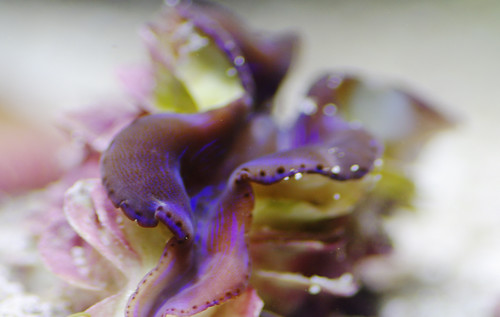
Blue Maxima from HOF
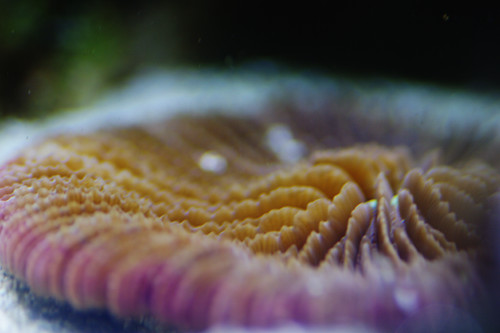
Fungia from HOF
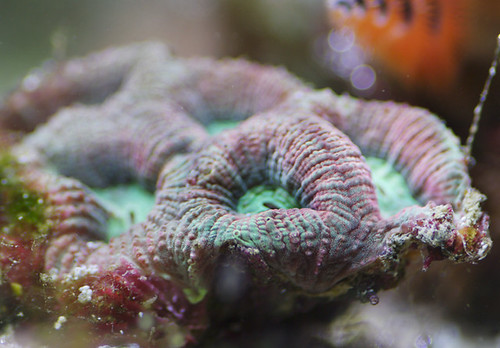
Favia from Cherry Corals
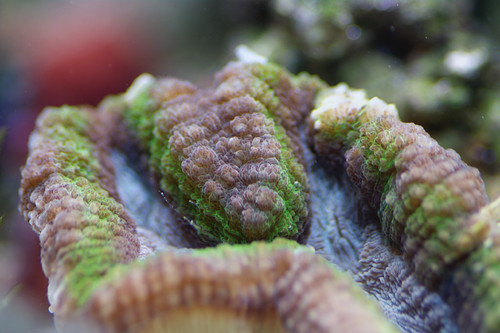
Lobo from Cherry Corals
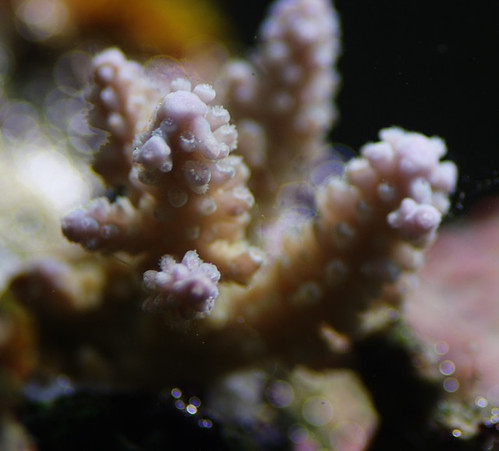
Acro from Dr. Mac
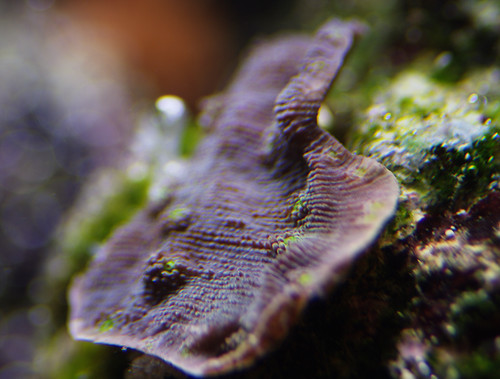
Chalice from nanoreefer
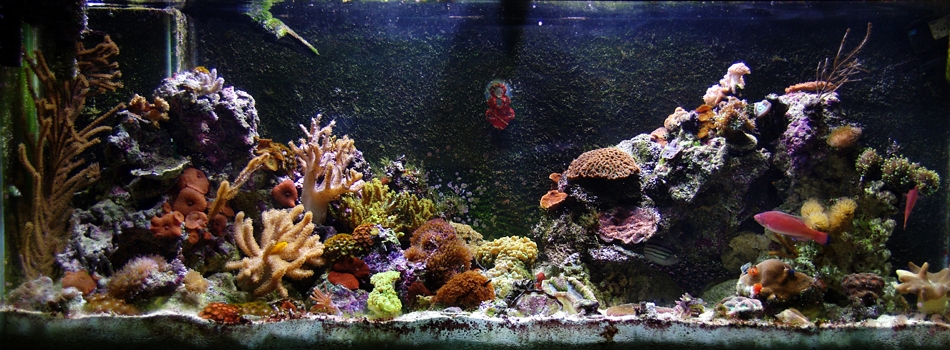
Full Tank Shot

Blue Maxima from HOF

Fungia from HOF

Favia from Cherry Corals

Lobo from Cherry Corals

Acro from Dr. Mac

Chalice from nanoreefer

Full Tank Shot
Last edited:
- Location
- Montclair, NJ
ooh ahhhhh. Beautiful! You have a great eye for nice corals.
- Location
- Upper East Side
You and Dom are both a bad bad influence.
- Location
- Montclair, NJ
The only way I believe Lissa even considers upgrading if it is a 48" long tank. The 75 fits too perfect where it is. I'm betting against an upgrade 
Last edited:
- Location
- 11756
Looks great Lissa!!
Think 120
Think 120
- Location
- Upper East Side
Can I enter the pool myself? 
- Location
- Upper East Side
I've resisted temptation, so all you betting in my upgrade would have LOST.
Here are a few other quick pics:
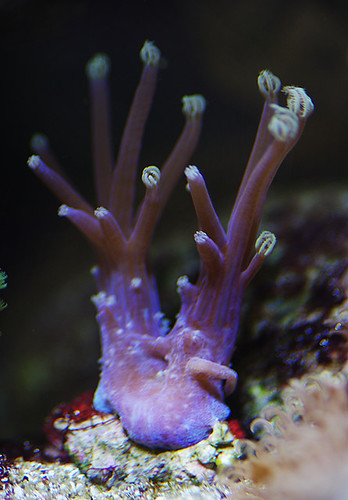
Efflo
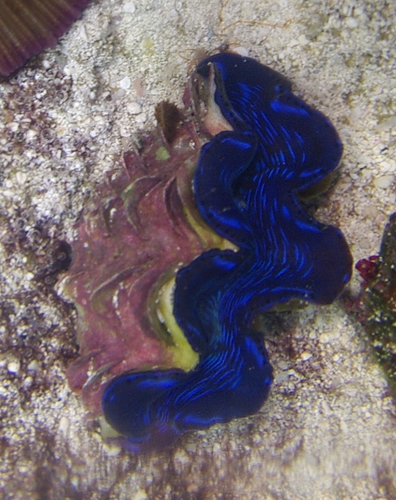
blue T. maxima (top down)
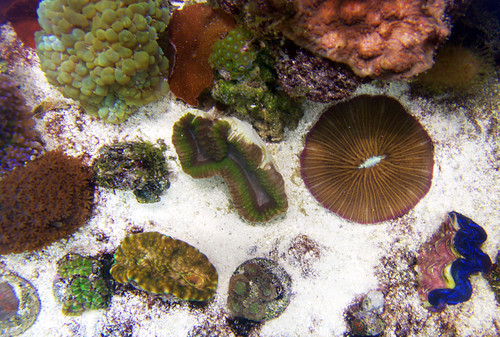
Top down of one section of my tank. You can see both of my clams, lobo, fungia, some green acans, my still recovering chalice and the first coral I ever bought - purple clove polyps. They look like little daisies. I've been labelling them Clavularia sp. but I'm never seen anyone else with them. They original came from Mike (slammamountainreefjamajamarama)
Here are a few other quick pics:

Efflo

blue T. maxima (top down)

Top down of one section of my tank. You can see both of my clams, lobo, fungia, some green acans, my still recovering chalice and the first coral I ever bought - purple clove polyps. They look like little daisies. I've been labelling them Clavularia sp. but I'm never seen anyone else with them. They original came from Mike (slammamountainreefjamajamarama)
- Location
- Upper East Side
Tank threads are about chronicling the trials and tribulations of a tank, so I suppose it's time to talk about the bad stuff. It is my belief that whenever the corals in a person's tank look really really good, the fish will start to cause problems (and visa versa). That is what has happened in my tank. I haven't lost a single fish in a year. The last fish I lost was my yellow assessor who got too stressed in the tank move, I think.
About a week after I got the kole tang, he came down with ich. I had ich in my tank once before, in my 29g. I quarantined all of the fish - both affected and unaffected - and they all died in quarantine and I had to rip apart my tank to catch them all. This isn't an option for me at this stage, so I decided to leave them in the tank try other treatments. I have been soaking the fish food in garlic for the past month and I have added a UV sterilizer to the tank. I've been allowing the tank to run a little on the warm side (83 degrees) but I don't want to let it get too warm or hypo because of the corals.
Thus far, I have lost the kole tang and one of my yellow clown gobies. The gobies were very stressed when I got them as they were subjected to a very long shipping time (box got left at the airport by accident) and were moved from tank to tank rapidly. He got ich almost immediately and disappeared. The other yellow clown goby I still have has NO signs of ich at all. (There was a third one that disappeared early on.) The kole tang finally died last night. He was looking awful and I considered euthanizing him two days ago.
As far as the other fish are concerned, some of the fish are totally unaffected. Both wrasses, my one blue-green chromis, one yellow clown goby and my firefish are fine - no spots at all. My tail spot blenny doesn't have any spots, but he's been rubbing up against things so I know he's got it. My lamarckii angel, spotted mandarin and royal gramma all have a lot of spots with the gramma being the worst and the angel being the best. All of the fish are still eating voraciously and swimming around. I am hoping that now that the tang is dead, the ich population will start to decrease because of a lack of a large, obviously suseptible host. Truthfully, I'm surprised any of my established fish caught it as I've had all of them for a LONG time and they aren't aggressive towards one another.
About a week after I got the kole tang, he came down with ich. I had ich in my tank once before, in my 29g. I quarantined all of the fish - both affected and unaffected - and they all died in quarantine and I had to rip apart my tank to catch them all. This isn't an option for me at this stage, so I decided to leave them in the tank try other treatments. I have been soaking the fish food in garlic for the past month and I have added a UV sterilizer to the tank. I've been allowing the tank to run a little on the warm side (83 degrees) but I don't want to let it get too warm or hypo because of the corals.
Thus far, I have lost the kole tang and one of my yellow clown gobies. The gobies were very stressed when I got them as they were subjected to a very long shipping time (box got left at the airport by accident) and were moved from tank to tank rapidly. He got ich almost immediately and disappeared. The other yellow clown goby I still have has NO signs of ich at all. (There was a third one that disappeared early on.) The kole tang finally died last night. He was looking awful and I considered euthanizing him two days ago.
As far as the other fish are concerned, some of the fish are totally unaffected. Both wrasses, my one blue-green chromis, one yellow clown goby and my firefish are fine - no spots at all. My tail spot blenny doesn't have any spots, but he's been rubbing up against things so I know he's got it. My lamarckii angel, spotted mandarin and royal gramma all have a lot of spots with the gramma being the worst and the angel being the best. All of the fish are still eating voraciously and swimming around. I am hoping that now that the tang is dead, the ich population will start to decrease because of a lack of a large, obviously suseptible host. Truthfully, I'm surprised any of my established fish caught it as I've had all of them for a LONG time and they aren't aggressive towards one another.
- Location
- Montclair, NJ
I wish there were more studies and information on ich. I think there is a lot of urban legends out there and not enough fact. People who have taken the utmost care of their systems and fish have developed ich in there system at one time or another.
Last edited:
Ich is one of the most studied fish diseases out there. It effects the fish farming industry way more than people with fish tanks.
The facts are all out there. You just need to read them and understand them
FTW : the only way to keep ich out of your system for good would require having a DT, a QT and a tank to keep everything but fish to let any free swimming or hitch hiker ich die before getting in your DT. Oh and don't forget a hospital tank. Most people won't do this, so most everyone gets ich in the tank at some point.
google Ichthyophthirius studies and see what comes up, there are more studies than you would want to read.
The facts are all out there. You just need to read them and understand them
FTW : the only way to keep ich out of your system for good would require having a DT, a QT and a tank to keep everything but fish to let any free swimming or hitch hiker ich die before getting in your DT. Oh and don't forget a hospital tank. Most people won't do this, so most everyone gets ich in the tank at some point.
google Ichthyophthirius studies and see what comes up, there are more studies than you would want to read.
Last edited:
- Location
- Montclair, NJ
Ich is one of the most studied fish diseases out there. It effects the fish farming industry way more than people with fish tanks.
The facts are all out there. You just need to read them and understand them
FTW : the only way to keep ich out of your system for good would require having a DT, a QT and a tank to keep everything but fish to let any free swimming or hitch hiker ich die before getting in your DT. Oh and don't forget a hospital tank. Most people won't do this, so most everyone gets ich in the tank at some point.
Can you post links? I'm most interested in how many species there are and the life cycles of each. More specifically: Can they lay dormant? For how long? What are some of the not-so-obvious ways to transmit them? How long can each species live without a host? Can corals carry ich? Can ich live inside a fish?
I have my theories based on experience but I would like to read solid scientific data. I was under the impression that we know copper kills it (along with other meds) and that the life cycle tends to be 2-3 months. I am starting to believe this is more of a general guideline than specific facts. There is an upcoming article that briefly mentions juvenile fish that was raised in their own system with freshly made saltwater that acquired ich. Where did it come from?
Last edited:
- Location
- Upper East Side
Eh, discuss away. 
And while I still want a kole tang badly, I might skip on tangs from here on out.
And while I still want a kole tang badly, I might skip on tangs from here on out.
- Status
- Not open for further replies.






